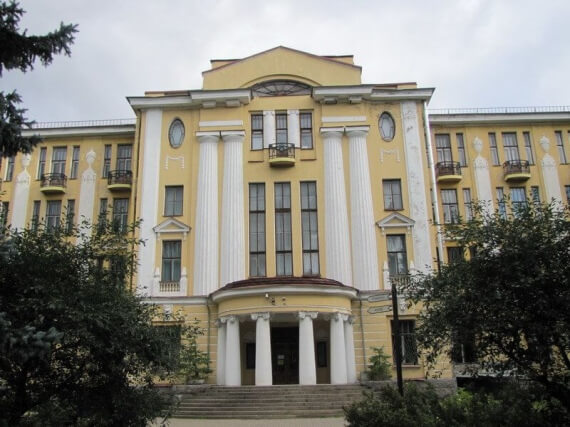AltSU Professor joined the Scientific Council of the Russian Academy of Sciences for the study of biodiversity and biological resources
The coreporter of RAS Corresponding Member Pavel Krestov was Dmitry Geltman, Director of the Komarov Botanical Institute RAS, Doctor of Biological Sciences. The meeting of the Presidium of the Russian Academy of Sciences took place on December 10, 2019.
 The member of the Altai State University board was Alexander Shmakov, Professor, Doctor of Biological Sciences, Director of the South Siberian Botanical Garden, Professor of the Department of Botany.
The member of the Altai State University board was Alexander Shmakov, Professor, Doctor of Biological Sciences, Director of the South Siberian Botanical Garden, Professor of the Department of Botany.
“On the agenda of the first meeting of the Botany Section of the Scientific Council of the Russian Academy of Sciences, the first issue discussed was the botanical collections (herbariums) formed at Russian institutes and universities. Colleagues presented the results of the digitizing process of funds and talked about the problems that arise in this context” comments Alexander Shmakov. “The discussion resulted in a document and accompanying materials of the directors of institutes of Biology of the Russian Academy of Sciences, containing an appeal and proposed forms of support for the development of collection funds”.
The decree of the Presidium notes the high role of the botanical gardens of Russia: “A significant part of the scientific research of plant resources is concentrated there. In Russia, there are currently 112 botanical gardens of various departmental affiliations, the work of which is coordinated by the Council of Botanical Gardens of Russia. In the collections of botanical gardens, about a third of the species of natural flora of Russia is preserved. Botanical gardens conduct a wide range of basic and applied research in the field of plant science and environmental protection, and carry out measures to preserve and maintain the plant gene pool. In addition, they are important cultural and educational centers. Plant genetic resources stored in the collections of botanical gardens are a single national collection distributed throughout the Russian Federation in a wide range of climatic conditions. Particular attention should be paid to the issue of training scientific personnel and the development of educational programs in higher education institutions aimed at training personnel in the field of agriculture and forestry, rational nature management, the study and conservation of natural ecosystems”(from a resolution of the Presidium of the RAS).
Among the priority tasks related to the transformation of terrestrial ecosystems, the Presidium of the Russian Academy of Sciences notes: the development and application of modern technologies for inventorying plant communities and classifying Russian vegetation; improvement of the regulatory framework governing the rational use of plant resources; improving methods for predicting the development of terrestrial ecosystems and the dynamics of plant ranges under climatic changes; preservation of the global and Russian gene pool of economically valuable plants in the Russian Federation; implementation of the ex situ and in situ conservation strategies for cultivated plants and their wild relatives as a source of future adapted plant varieties with improved properties in the interests of the country's food security (from a resolution of the Presidium of the Russian Academy of Sciences).
“In a logical way, the priority tasks of the resolution include the development of the ALTB Virtual Herbarium collection at AltSU, which was launched in 2010 as an initiative project of the South Siberian Botanical Garden under the direction of Alexey Vaganov, Candidate of Biological Sciences. The employees obtained a patent for official registration in the FIPS and two databases. To date, more than 16,000 copies have been digitized, including the most valuable material - standard. The Herbarium Foundation ALTB is the largest source of data on the phyto-diversity of the Greater Altai, numbering more than 450 thousand copies. All information about plants, collected mainly from the transboundary territory of the Altai mountainous country within Russia, Kazakhstan, Mongolia and China, as well as from different continents of our planet by botanists, is being integrated today in GBIF (Global Biodiversity Information System)” said Alexander Shmakov.